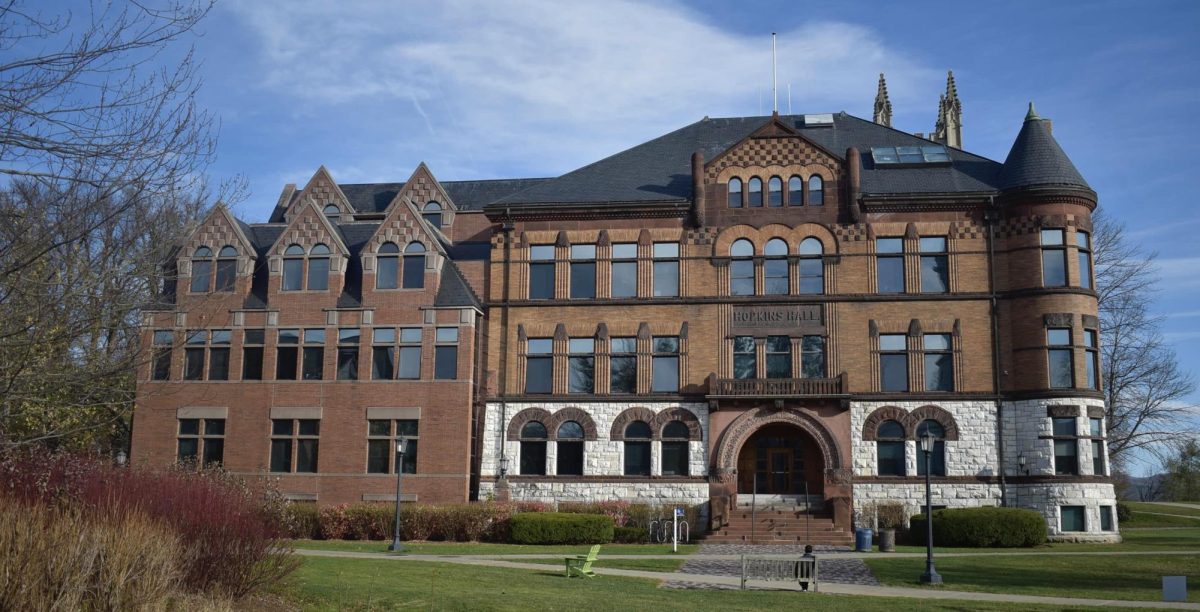Mike Bodnarik, the associate director of the Office of Student Life (OSL), sent an email on Nov. 1 to all student groups, clarifying the College’s policy toward the use of college resources for political activities conducted by student groups. In the email, Bodnarik wrote, “It’s important that we all get involved in elections and political processes if we want democracy to thrive.” He added, however, that because of the College’s status as a 501(c)(3) not-for-profit, certain limits are imposed upon student groups on campus with regards to using College resources for political activities.
Bodnarik’s email laid out examples of political activities that “may not be carried out through the College, or with use of Williams’ name, sponsorship, support or resources (including college spaces and technology).” These activities include conducting voter education activities that favor a candidate, party or issue position; endorsing a candidate for public office, either expressly or by implication; promoting action (including voting) with respect to issues that are closely associated with one candidate or another; and providing free office space, phones, copier use or other institutional resources or support to a candidate, campaign, political party, PAC or the like. OSL also works with the Office of Communications to ensure that Daily Messages abide by the College’s policy, with OSL working to “assist the group/student to redraft their message, so their intent and ideas can still be shared.” Though Bodnarik invited students to ask if they are uncertain about anything, he made clear that “If an activity isn’t on this list or ruled out by other Williams policies, chances are it’s OK.”
To Bodnarik, however, there is more to the policy than simply keeping the College’s nonprofit status in place. “We do everything we can to provide an environment that is respectful of all people’s rights regarding
[f]reedom of [s]peech,” Bodnarik wrote to the Record in an email. The College and the OSL work with student groups on campus, he added, to “make sure that all candidates/views are represented at the forum/debate.”
OSL’s policy is not without its critics, however. Solly Kasab ’21, who worked to register voters on campus in the lead-up to the 2018 midterm elections, found that the policy’s vague nature “lends itself to a natural stifling of political views.” While Kasab conceded that “the views on our campus are sometimes seen as one-sided (and rightfully criticized sometimes for a lack of intellectual diversity), I think clamping down goes too far.” Kasab recounts seeing a “Yes on 3” sign being removed by an OSL member, and affirms that signage on campus is clear to observers as not a representation of the College’s views. “I think a reasonable observer would conclude that student-led efforts, such as our registering voters or putting up signs, do not represent the viewpoints of the College as a whole,” Kasab said.
Kasab also contests that student groups should have some level of autonomy in political action, citing that “funds received by student groups are student funds,” and that the money for student groups, by virtue of its nature as the Student Activities Tax, is student money and therefore separate from college resources. “On the whole, the [policy] seems disingenuous, as no reasonable person could expect all student activities to be endorsed and paid for by the College,” he said.
While Bodnarik reiterates the importance of maintaining the college’s non-profit status, OSL is willing to work with student groups and provide assistance to help organizations work within the boundaries of the policy. “This is a positive area for us and when things arise we provide support to allow groups/students to work towards their goals,” Bodnarik said.








